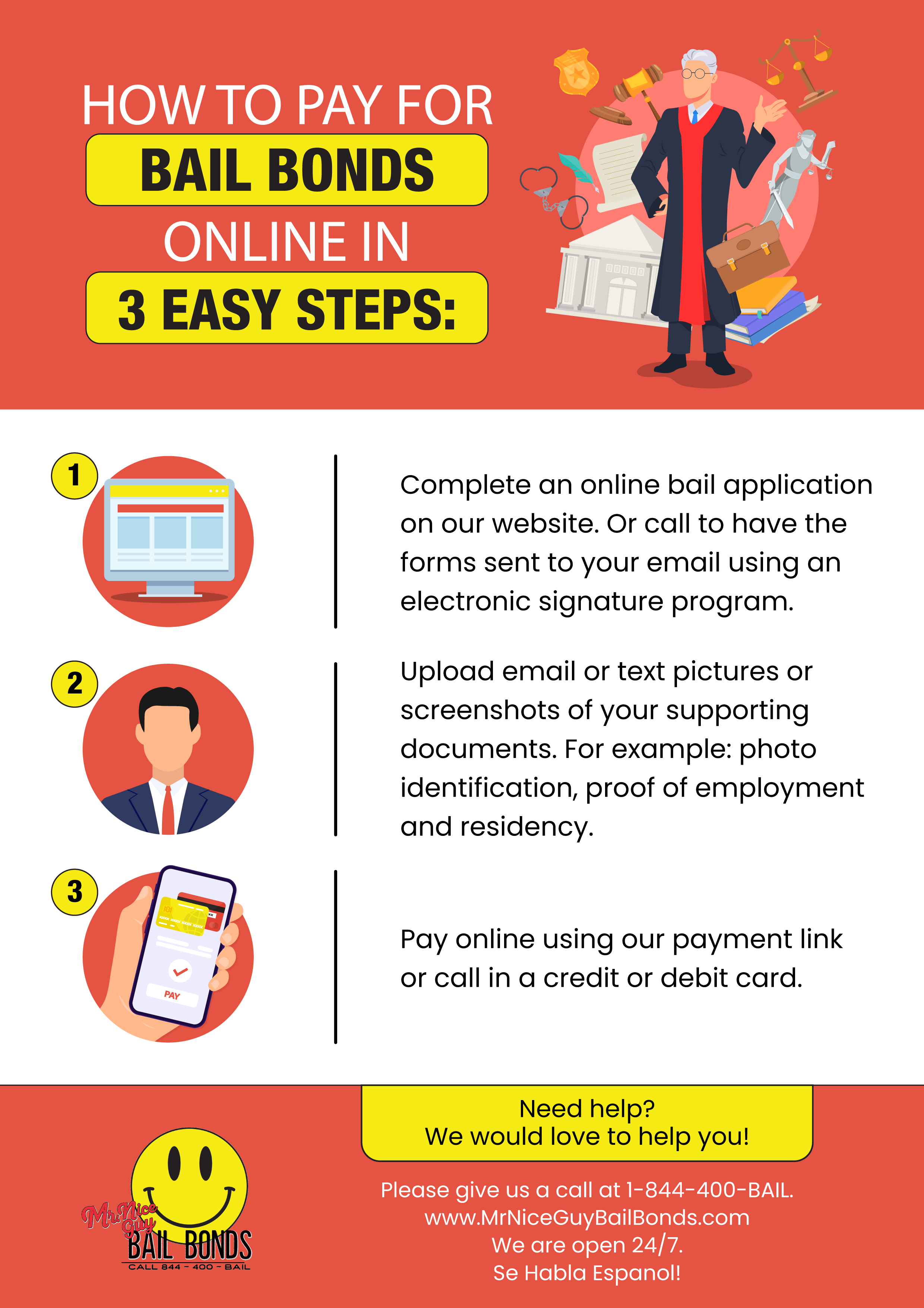Your Full Overview to Understanding Bail Bond Conditions
Navigating the complexities of bail bond terms and problems is an essential part of efficiently taking care of lawful challenges. Different types of bond bonds and their connected expenses can substantially impact the decision-making procedure.
What Is a Bail Bond?
A bail bond is a legal contract in between an offender, a bond bondsman, and the court, guaranteeing that the offender will appear for scheduled court process in exchange for their launch from wardship. bail bonds service. This legal tool offers to safeguard the rate of interests of the court by giving a financial reward for the defendant to abide by judicial requirements
(bail bonds dayton ohio)Typically, when a defendant is detained, they might be offered the option to publish bail, which is a financial quantity established by the court. If the offender can not afford the bail, they can seek the help of a bondsman. The bail bondsman bills a non-refundable cost-- usually a percentage of the overall bail amount-- for posting the bond on part of the accused.
Upon the defendant's release, the bail bond remains basically until the final thought of the litigation. Failing to show up in court might lead to forfeit of the bail amount, and the bondsman may pursue the defendant to recover the costs incurred. bail bonds service. Consequently, comprehending the dynamics of bail bonds is vital for accuseds and their family members as they navigate the judicial process.
Secret Terms Explained
Understanding bail bonds entails acquainting oneself with a number of key terms that are essential to the process. One vital term is "bail," which describes the quantity of money required to secure the launch of an accused from protection while awaiting test. "Bondsman," or "bondsman," is an additional essential term, signifying a specialist that offers the required funds for bail in exchange for a cost, commonly a portion of the total bond quantity.
" Collateral" is additionally considerable; it represents properties promised by the offender or co-signer to make certain the bond's repayment. If the defendant falls short to appear in court, the collateral might be waived. The term "indemnitor" refers to the individual that accepts be in charge of the bond, typically a family members participant or friend of the implicated.

Kinds of Bail Bonds
Various kinds of bail bonds offer various functions and satisfy specific conditions in the legal system. One of the most typical kind is the surety bond, where a bondsman assures the accused's look in court in exchange for a fee, commonly 10% of the bond amount. This type is widely made use of since it allows individuals who can not pay for the complete bail to secure their release.
Another type is the money bond, which needs the full bond total up to be paid in money to the court. This alternative is usually preferred for reduced bond amounts, as it makes certain the defendant's launch without involving a bondsman (bail bonds service). If the offender appears in court as needed, the cash is reimbursed at the conclusion of the situation
Additionally, there are residential or commercial property bonds, where property is used as security Visit This Link for the bail quantity. This can be a viable choice for people that have home but do not have fluid funds.
Lastly, government bonds put on government instances and are generally extra challenging to acquire, commonly requiring the assistance of a specialized bail bondsman. Understanding these variations is critical for browsing the bond system successfully.
Typical Misconceptions
Mistaken beliefs regarding bail bonds frequently lead to confusion for accuseds and their households. In truth, bail serves as a monetary guarantee that the defendant will show up at their set up court hearings.
One more usual misconception is that all bond bonds coincide. There are numerous sorts of bail bonds, consisting of guaranty bonds, money bonds, and property bonds, each with distinctive features and requirements. Recognizing these differences is crucial for making educated choices.
Additionally, many individuals think that bail bond agents are just shylock. In truth, licensed bail bond representatives operate within a regulated structure, charging a premium for their solutions, which is generally a portion of the total bond amount.
Last but not least, some think that only well-off people can afford bond. Nonetheless, bail bond services are made to help those that may not have prompt accessibility to large amounts of cash, allowing a wider segment of the populace to protect their launch while awaiting test. Clear understanding of these misconceptions can considerably ease anxiety throughout a challenging time.
Understanding Fees and Prices
While navigating the bail bond process, it is necessary to be aware of the fees and expenses linked with securing a bond. Bail bonds usually need a non-refundable costs, which is a portion of the complete bail amount set by the court. This premium typically ranges from 10% to 15%, depending on state policies and the bail bond company's policies.
In addition to the premium, there may be various other costs entailed. These can consist of management costs for refining the bond, security charges if assets are required to secure the bond, and prospective renewal charges if the bond requires to be prolonged. It is vital to ask the bail bond representative for a thorough failure of all prices to stay clear of unanticipated expenditures.
(bail bonds newark ohio)Comprehending these economic aspects in development can aid individuals make educated decisions and ensure they are prepared for the total prices associated with the bail bond process. Constantly read the contract extensively and look for clarification on any type of vague terms before proceeding.
Final Thought
